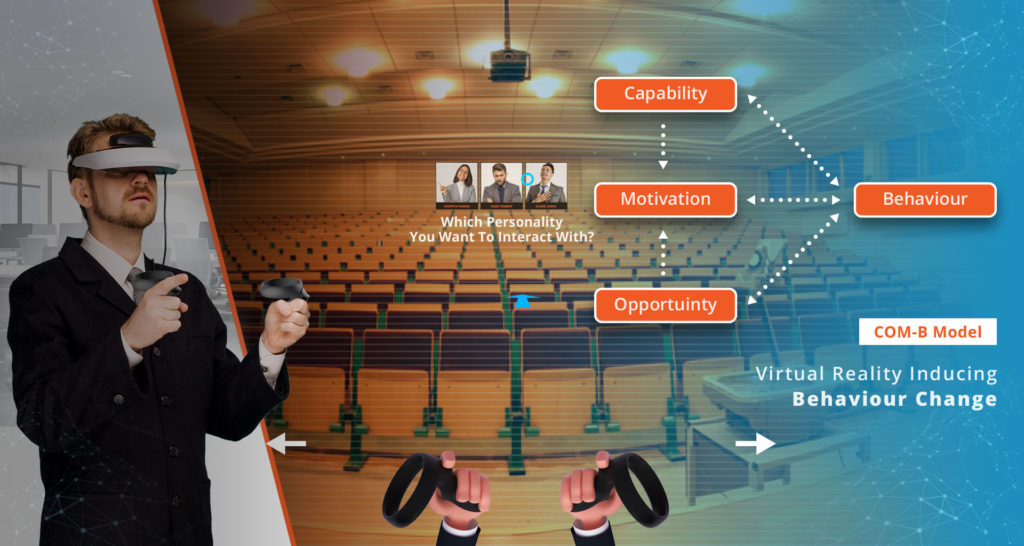Employees are in a dilemma: their work is requiring them to learn a new skill or upgrade existing ones, but they are not able to do so in the same setup as before.
As employers are welcoming employees back after a shift in the global environment, the required critical skills might not have remained the same. To address this challenge, we need technology that resembles the physical setup, like a classroom or practice room.
How can Learning be Impactful? Do we Have any Case Examples?
“A computing concept known as the ‘mirrorworld’ can be traced back to NASA, circa 1960, and the logic was simple: for every shuttle NASA sent into outer space, an exact duplicate was left on earth to troubleshoot a malfunctioning component. Eventually these mechanical twins evolved into computer simulations – or digital twins. Creating a digital twin soon morphed into replicating environments, entire cities and landscapes replicated virtually.”
With virtual reality (VR), our brain becomes more active and accurate at incurring memories. Nothing distracts learners from being in that new world. At the physiological level, the brain and sensory organs start to dance in a sensorimotor loop to make sense of a given simulated environment with haptic and auditory cues. This allows learners to believe in it more and to feel much stronger emotions.
Virtual Reality in Training:
Research on soft skills training for a group of managers at PwC, across 12 US locations, was undertaken in three modalities: classroom, e-learning, and v-learning. The results showed VR to be the most impactful skills training method. A report by the learning guild suggests that behavior change requires a change in at least one of these elements: capability, opportunity, and motivation—better known as the COM-B model.
1. A Real Behavior Change Agent
One area of behavioral change is developing skills—learning how to do something or how to do it better. VR provides an excellent prospect by triggering learners’ responses in a safe environment. The freedom to fail while practicing offers consistency and reduces or eliminates the potential for error, making learners feel reassured to apply acquired knowledge to work.
2. Fast and Focused Learning
This study by PwC also showed that US employees spend only 1% of their workweek in learning and development. Thus, employers need to make sure the learning organization is impactful and productive. Against a typical classroom training of two hours, a VR training of even half an hour is efficient.
3. Make Learners Confident Appliers
VR learners perform the applied learning and skills with greater confidence. VR is found to be more memorable than simple video content, easily repeatable, infinitely scalable, and capable of isolating users from distraction. This research proved VR learners to be 275% more confident in acting on the learned concepts after training—a 40% improvement over classroom training, and a 35% improvement over e-learning.
4. Emotional Connection to the Situation
From building empathy to allowing learners to safely experience the consequences of their choices, VR offers a wealth of customized instruction options. It allows learners to walk in someone else’s shoes, like a customer, a patient, or a colleague, and experience the situation from their point of view. This is the best type of counseling, which can lead to immediate behavior change.
Research at the University of Maryland found that there is a 9% improvement in memory accuracy when learning in VR versus flat-screen mode. Walmart has used a blended learning version along with the frequently used model, ‘The Pickup Tower,’ to train over a million of its associates in VR. With Verizon, L&D professionals use VR to enable the workforce to manage high-stake business situations with empathy, and to learn how to handle difficult customer conversations.
In the new normal, it is necessary for training to not only provide skills and knowledge but also improve human virtues like compassion, confidence, empathy, and a sense of security. At this time, when we have seen classroom training diminishing, VR can be viewed as an impactful solution to skills training.
Are you looking to leverage change on Critical Skills? Reach out to G-Cube to create an impactful solution and experience the future of learning.









